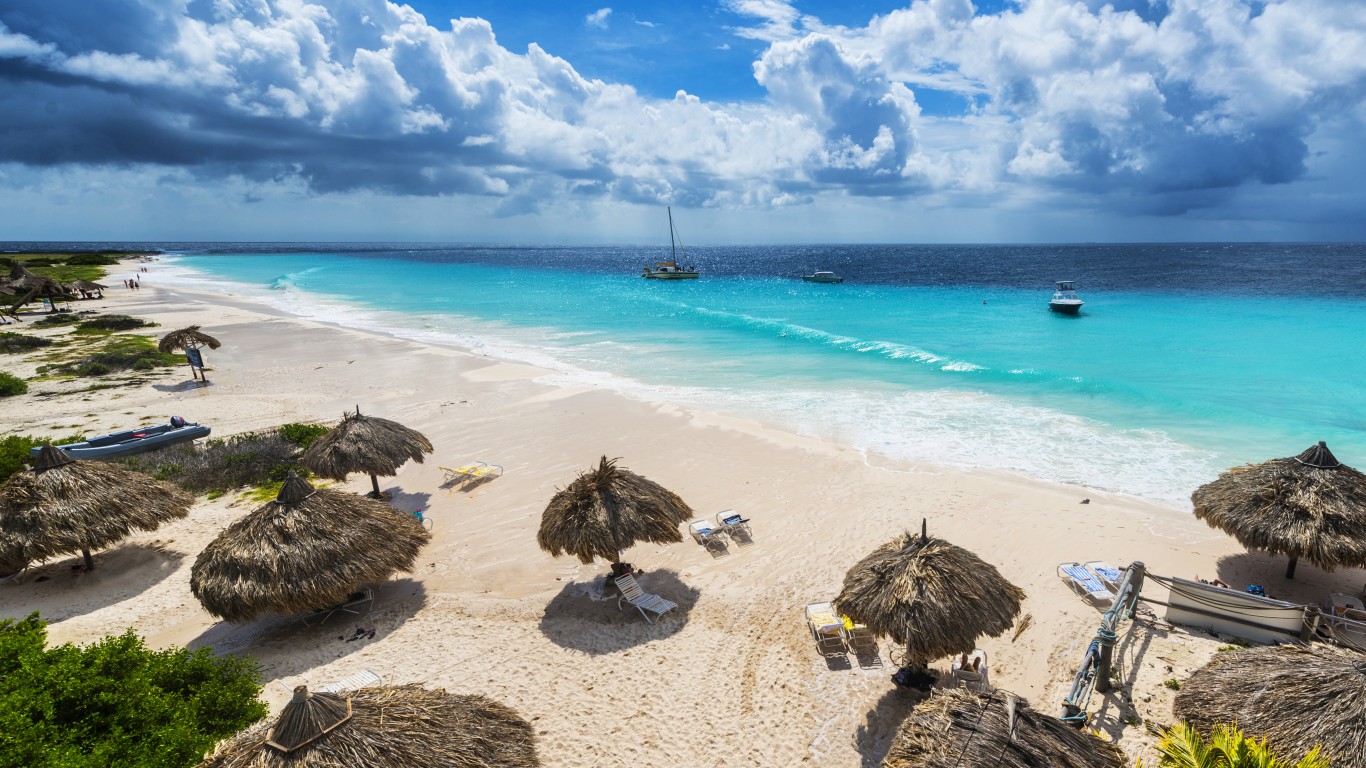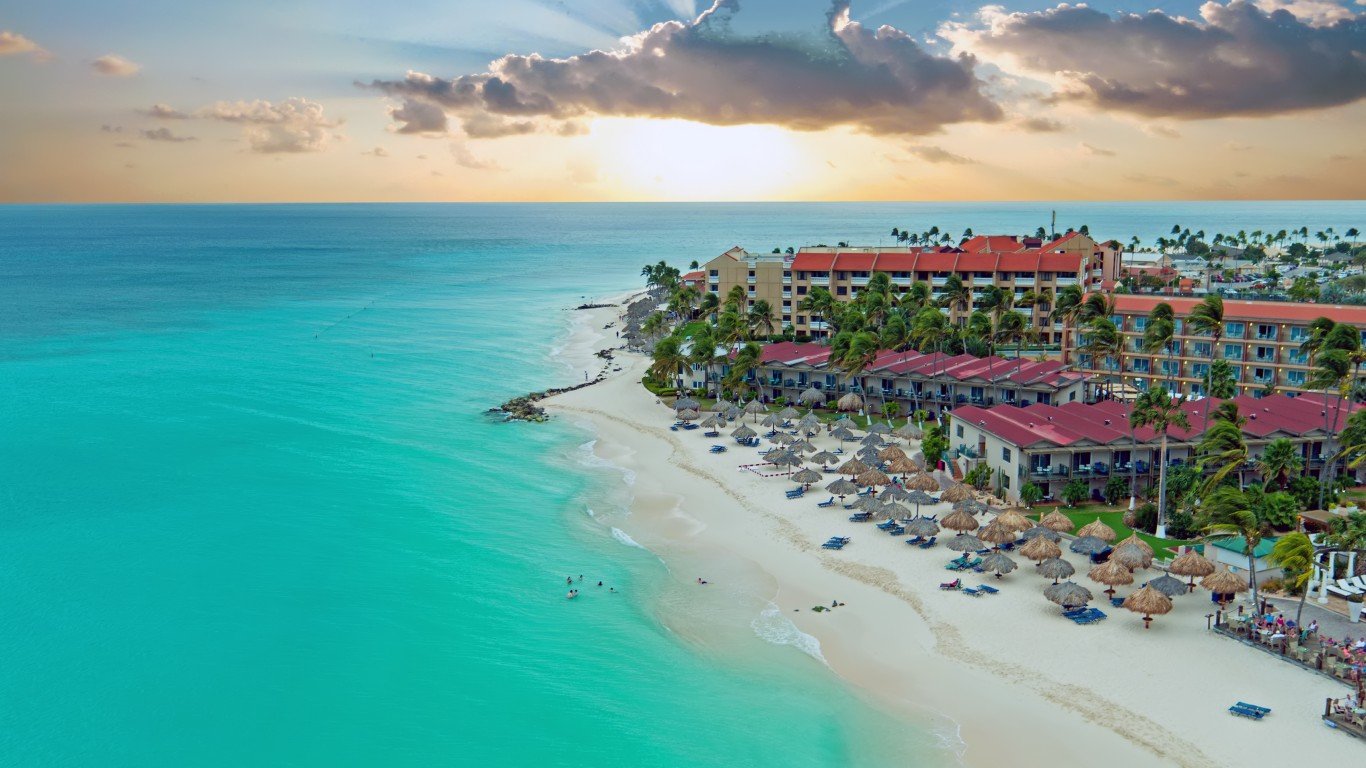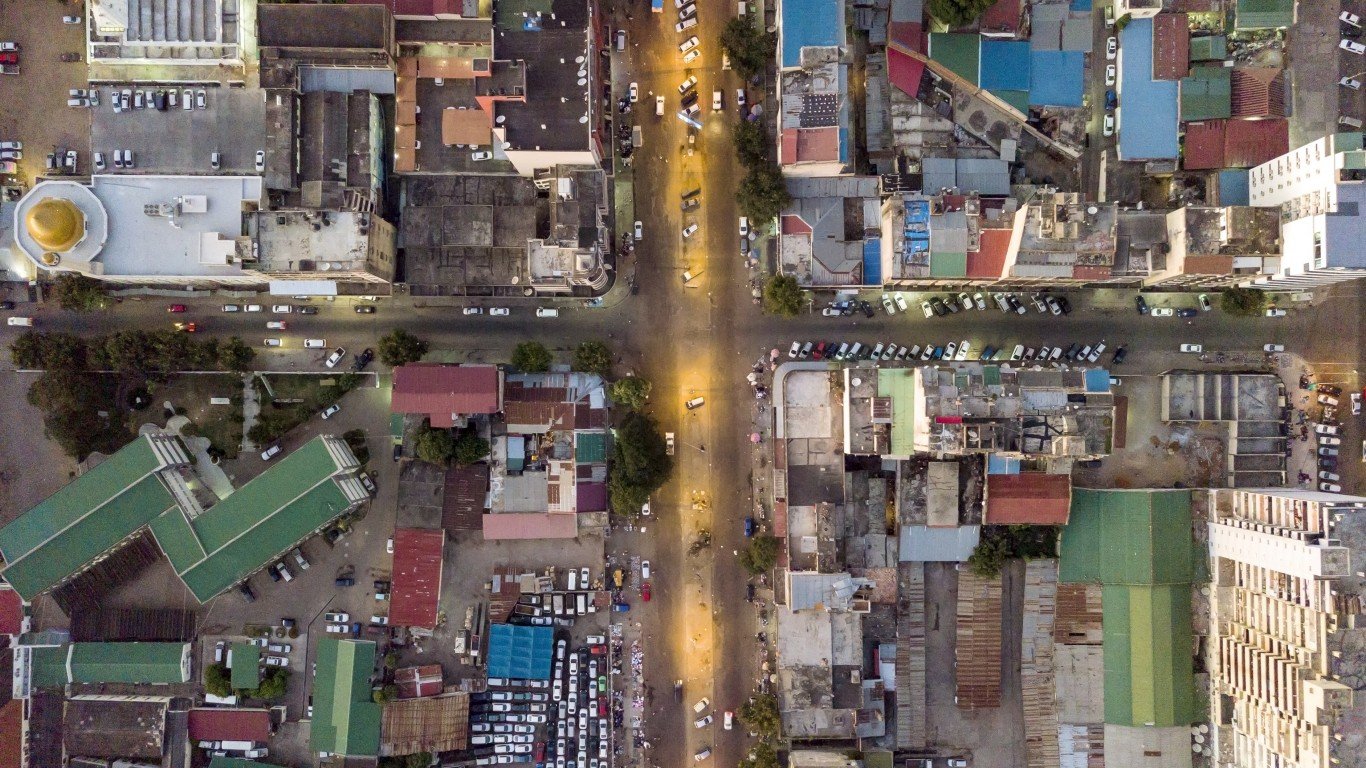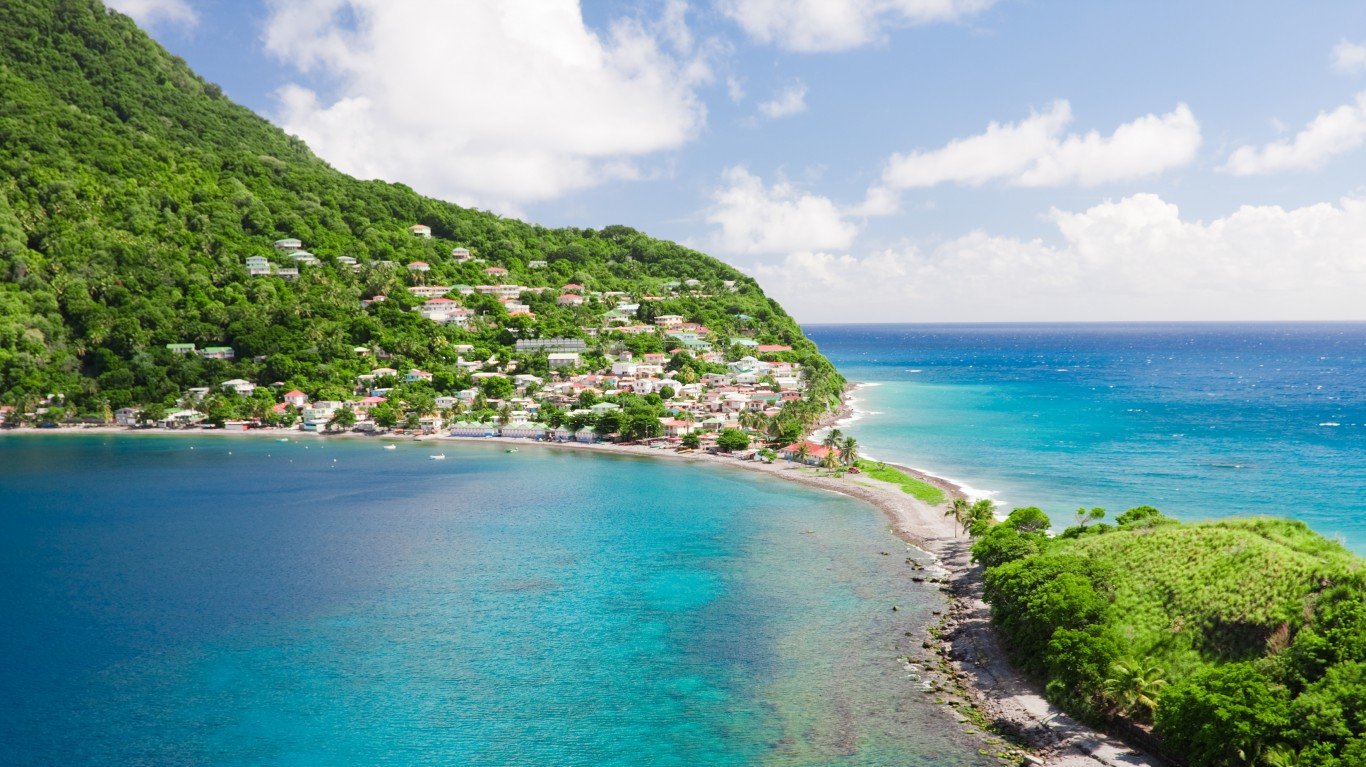
25. Curacao
> Imports as % of GDP, 2016: 74.08%
> Imports in current US$, 2016: $2.31 billion – #33 lowest of 189 countries
> Trade as % of GDP, 2016: 131.43% – #27 largest of 190 countries
> Exports as % of GDP, 2016: 57.35% – #37 largest of 190 countries
> Exports in current US$, 2016: $1.79 billion – #40 lowest of 189 countries
> GDP in current US$, 2020: $2.60 billion – #25 lowest of 190 countries
The Dutch Caribbean island is known as the “Jewel of the Antilles” and as the name implies it relies heavily on drawing tourists to its pristine beaches and clear waters. In addition to offering offshore banking services, Curacao has a state-owned oil refinery and terminal that has struggled since the collapse of nearby Venezuela’s economy, but it’s been developing itself as a logistical trade hub.

24. Aruba
> Imports as % of GDP, 2018: 74.63%
> Imports in current US$, 2018: $2.39 billion – #36 lowest of 189 countries
> Trade as % of GDP, 2018: 148.43% – #20 largest of 190 countries
> Exports as % of GDP, 2018: 73.80% – #18 largest of 190 countries
> Exports in current US$, 2018: $2.36 billion – #47 lowest of 189 countries
> GDP in current US$, 2018: $3.20 billion – #29 lowest of 190 countries
Like other Caribbean countries and territories, Aruba is heavily dependent on tourism and subsequently has been battered economically by the COVID-19 pandemic. Aruba, located close to Venezuela and Curacao, also offers offshore banking services and has transshipment and ship maintenance facilities.

23. Mozambique
> Imports as % of GDP, 2019: 75.08%
> Imports in current US$, 2019: $11.55 billion – #94 lowest of 189 countries
> Trade as % of GDP, 2019: 115.84% – #37 largest of 190 countries
> Exports as % of GDP, 2019: 40.76% – #65 largest of 190 countries
> Exports in current US$, 2019: $6.27 billion – #78 lowest of 189 countries
> GDP in current US$, 2020: $14.02 billion – #64 lowest of 190 countries
In 2011, gas fields were discovered off the coast of this largely impoverished southeastern African country, opening the way for economic transformation that has been hampered by an ongoing Islamist insurgency in the north. Mozambique’s top imports are refined petroleum and machinery. Its top exports include aluminum and coal.

22. Hungary
> Imports as % of GDP, 2020: 77.78%
> Imports in current US$, 2020: $121.19 billion – #35 largest of 189 countries
> Trade as % of GDP, 2020: 157.26% – #15 largest of 190 countries
> Exports as % of GDP, 2020: 79.48% – #12 largest of 190 countries
> Exports in current US$, 2020: $123.84 billion – #35 largest of 189 countries
> GDP in current US$, 2020: $155.81 billion – #54 largest of 190 countries
Hungary maintains a close trading relationship with Europe’s economic powerhouse, Germany. The country’s top imports include machinery, auto parts, and integrated circuits. The country’s top exports include machinery, auto parts, and pharmaceuticals. Its GDP expanded by 6.5%-7% last year.

21. Dominica
> Imports as % of GDP, 2018: 78.35%
> Imports in current US$, 2018: $0.43 billion – #11 lowest of 189 countries
> Trade as % of GDP, 2018: 107.77% – #42 largest of 190 countries
> Exports as % of GDP, 2018: 29.41% – #88 lowest of 190 countries
> Exports in current US$, 2018: $0.16 billion – #11 lowest of 189 countries
> GDP in current US$, 2020: $0.50 billion – #6 lowest of 190 countries
Compared to other Caribbean countries and territories, Dominica’s tourism industry is relatively small, owing in part to an airport that’s too small to handle commercial jets and a dearth of white-sand beaches upon which to plant giant all-inclusive resorts. The tiny Caribbean island country has a population of only about 72,000 people, who depend on imports of fuel from other countries.

 24/7 Tempo
24/7 Tempo




